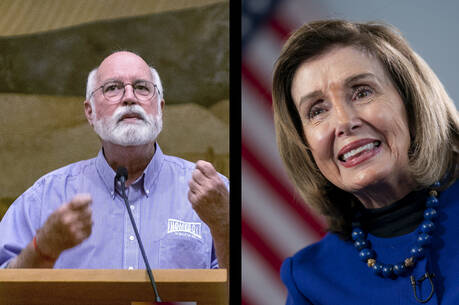We expect a great deal from the nation’s public primary education system. Though teachers are the frequent targets of some politicians—collateral damage in an undeclared war on public sector union membership—they accept each school day the challenge of preparing the next generation of Americans for productive and meaningful lives.
Mounting evidence suggests that their jobs are only getting more difficult. The Southern Education Foundation reported in January that children growing up in poverty now make up the majority in the nation’s public schools. This conclusion is based on an analysis of statewide percentages of children eligible for free or reduced-price lunches, which is a somewhat imprecise measure because some schools try to avoid stigmatizing children by providing a free lunch for everyone. But the trend of growing poverty among U.S. schoolchildren has been clear for some time, and it is corroborated by other measures. The Children’s Defense Fund reports that the United States has the second highest child poverty rate among 35 industrialized countries, “despite having the largest economy in the world.”
Five years into the economy’s uneven recovery, under- and unemployment rates remain high and wages stagnant. Too many of the nine million private-sector jobs created since the U.S. economy emerged from recession in 2009 are concentrated in low-skill and low-pay sectors. While some state and local minimum wage campaigns have scored victories, the federal minimum wage of $7.25 has been unchanged since 2009, and its buying power has diminished to a 40-year low. When parents are not doing well, their children suffer beside them. Higher numbers of children are joining the free-lunch line, especially in Southern and Western states. In Mississippi and New Mexico, nearly three-quarters of public school students now qualify for food assistance.
America has long supported mechanisms that allow more children to tap into the special resource of this nation’s Catholic schools, often incubators of opportunity in high-poverty communities, but it recognizes that addressing deficits in public schools, where most Catholic children now receive their primary education, remains an essential obligation of a vibrant and just society. Public schools have long since ceased to be places where children simply receive an education. As a consistent and dependable point of contact with children, they have become essential for assessing needs and distributing social services to children. Public schools deserve to have the resources that will allow them to successfully perform this double duty.
Unfortunately a report in 2011 from the U.S. Department of Education documented spending disparities between affluent and high-poverty school districts; more than 40 percent of the latter were significantly underfunded. This is because of the property-tax funding structure for public education, and it often means that children who are already advantaged get additional enrichment opportunities, while peers in high-poverty districts strain for the basics. In a rational society that aims for fairness and opportunity, schools in low-income communities would not only achieve parity with wealthier districts; they would be better resourced. Their students have greater obstacles to overcome. A thorough overhaul of district funding systems is an essential component of school reform.
Fighting poverty has become the surprise theme of the approaching 2016 presidential campaign, and during his recent State of the Union address, President Obama positioned himself as a builder of a middle-class economy that will improve the standard of living for all. The focus on reducing poverty and shoring up the middle class is welcome, but unless systemic modifications can make it through Congress, it is all just talk. (Expanding the Earned Income Tax Credit, a proposal that enjoys bipartisan support, might be a good place to start.)
Growing child poverty should raise alarms among political leaders and public policymakers. It suggests that the nation as a whole did not prepare a previous generation, who are now raising their own children, for a modern workforce that increasingly requires quality education. However either party chooses to respond to middle-class decline in the United States, creating fairness and opportunity for all begins with improving public education.
Defending improvements in public education, advocates note the important role today’s schoolchildren will eventually play as tomorrow’s working and tax-paying adults. But children are more than just potential cogs in the machinery of the nation’s workforce. They have the right to expect the adult world to look out for them and provide them the best start in life possible—not because we all will someday depend on them, but because it is our God-given duty to them, one that should be borne with love and hope, not shouldered with resentment or indifference.








